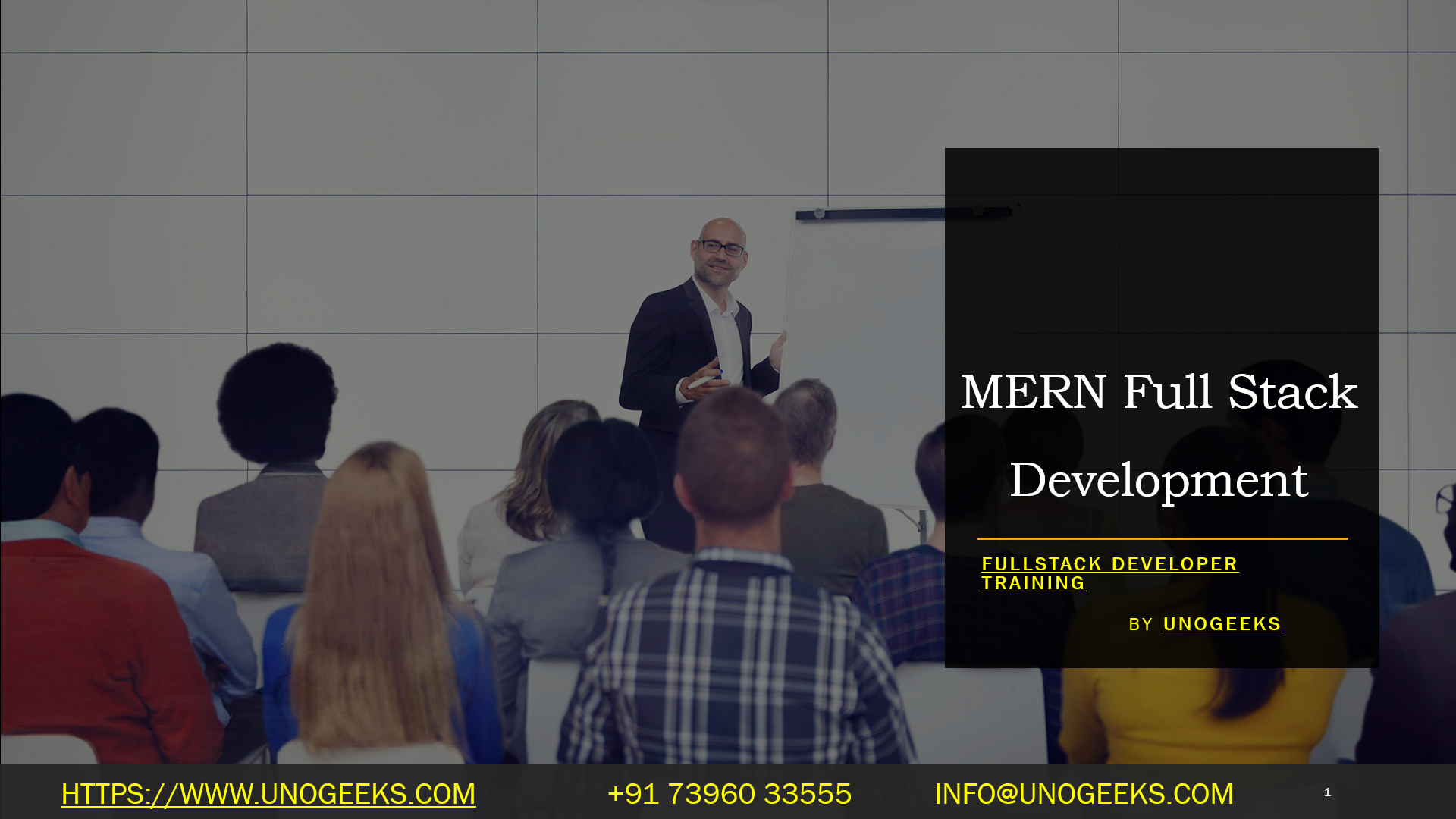MERN Full Stack Development
MERN Full Stack Development
MERN is an acronym that stands for MongoDB, Express.js, React, and Node.js. It represents a popular stack of technologies for building full-stack web applications. Here’s an overview of MERN Full Stack Development:
- MongoDB (M):
- Type: MongoDB is a NoSQL database, meaning it stores data in a non-tabular format (like JSON) and is well-suited for handling large volumes of unstructured or semi-structured data.
- Use Case: MongoDB is commonly used to store and manage the application’s data, including user information, content, and other structured or unstructured data.
- Express.js (E):
- Type: Express.js is a back-end web application framework for Node.js.
- Use Case: Express.js simplifies building server-side logic and APIs. It handles routing, middleware, and request/response handling for your application.
- React (R):
- Type: React is a front-end JavaScript library for building user interfaces.
- Use Case: React allows you to create dynamic and interactive user interfaces for web applications. It follows a component-based architecture, making it easy to build reusable UI elements.
- Node.js (N):
- Type: Node.js is a JavaScript runtime environment that enables server-side development using JavaScript.
- Use Case: Node.js is used to run the server-side code of your application. It handles requests from the client, interacts with the database, and performs server-related tasks.
Key Aspects of MERN Full Stack Development:
- Isomorphic/Universal Applications: With the MERN stack, you can create isomorphic or universal applications, where the same JavaScript code can be executed on both the client and server sides. This can improve performance and SEO.
- RESTful APIs: MERN applications often use RESTful APIs to enable communication between the front end and back end. These APIs define how data is requested and exchanged between client and server.
- Single-Page Applications (SPA): React is commonly used to create SPAs, where the entire application loads once, and subsequent interactions happen dynamically without full-page refreshes.
- Real-time Features: Node.js and libraries like Socket.io enable real-time features, such as chat, notifications, and live updates, in MERN applications.
- State Management: React applications often use state management solutions like Redux or MobX to manage complex application states.
- Deployment: MERN applications can be deployed to various hosting platforms, including cloud providers like AWS, Heroku, or Vercel. Docker containers are also commonly used for deployment.
- Responsive Design: Creating responsive and mobile-friendly user interfaces is essential for delivering a great user experience across different devices and screen sizes.
Full Stack Developer Training Demo Day 1 Video:
Conclusion:
Unogeeks is the No.1 IT Training Institute for Full Stack Developer Training. Anyone Disagree? Please drop in a comment
You can check out our other latest blogs on Full Stack Developer Training here – Full Stack Developer Blogs
Please check out our Best In Class Full Stack Developer Training Details here – Full Stack Developer Training

———————————-
For Training inquiries:
Call/Whatsapp: +91 73960 33555
Mail us at: info@unogeeks.com
Our Website ➜ https://unogeeks.com
Follow us:
Instagram: https://www.instagram.com/unogeeks
Facebook:https://www.facebook.com/UnogeeksSoftwareTrainingInstitute
Twitter: https://twitter.com/unogeeks
